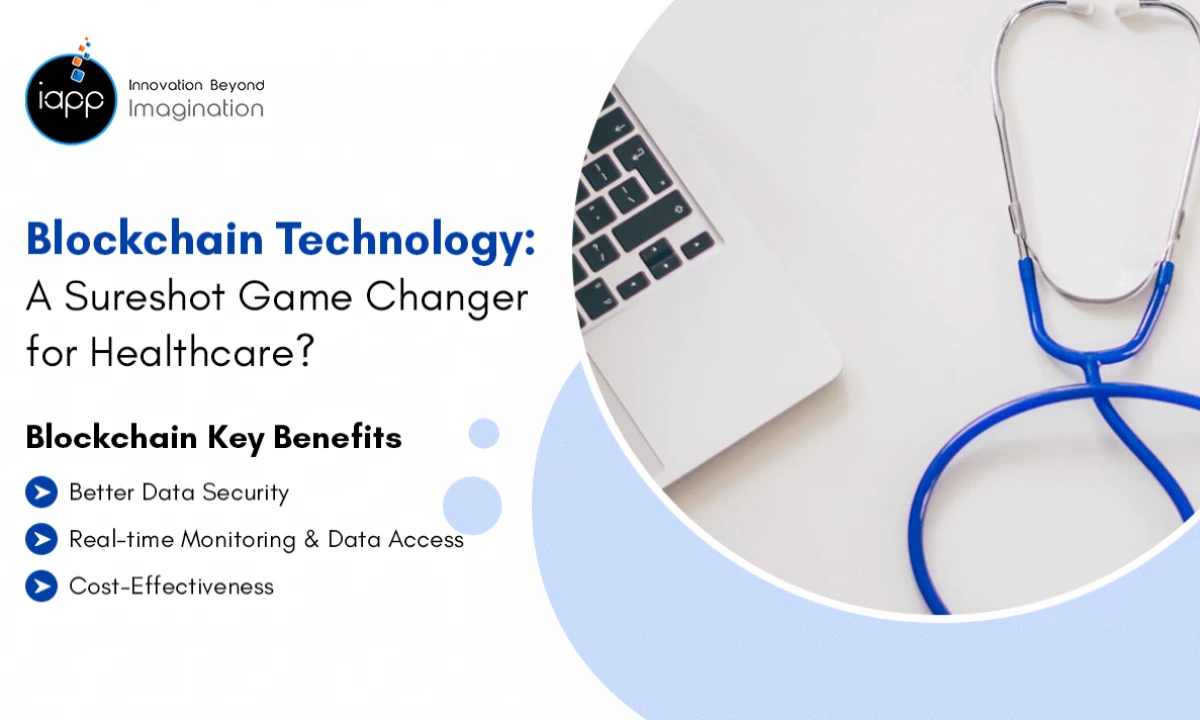


The healthcare industry has always struggled with fragmented data systems, complex regulations, and outdated infrastructure. Sensitive medical information is often scattered across multiple platforms, making it difficult for patients and providers to access timely and accurate records. On top of that, centralized systems increase the risk of cyberattacks, data breaches, and inefficiencies.
This is where blockchain technology enters the scene. Known for powering cryptocurrencies like Bitcoin, blockchain has now evolved into a powerful tool for industries beyond finance—and healthcare stands to benefit the most. By enabling secure, transparent, and decentralized data management, blockchain can help address long-standing challenges in the healthcare ecosystem.
At iApp Technologies, we believe blockchain is not just a trend but a transformative solution that can empower healthcare providers to deliver secure, patient-centric, and cost-effective care.
Traditional medical data management systems are limited when it comes to interoperability and security. For instance, transferring patient records between institutions is often time-consuming, and patients themselves rarely have full ownership of their medical data. Blockchain solves this problem by creating a secure, decentralized ledger that allows patients, doctors, and other stakeholders to exchange data seamlessly without compromising privacy.
Blockchain uses a decentralized and encrypted system, making it nearly impossible for hackers to alter or steal sensitive data. Hospitals and clinics can rely on this framework to protect medical records against cyber threats. Partnering with experts who offer blockchain development services can further enhance security by creating customized, compliant, and scalable solutions.
With wearable devices and IoT-enabled tools, blockchain can record real-time health metrics such as heart rate, blood pressure, or sugar levels. Doctors can monitor patients remotely, and emergency alerts can be triggered instantly if irregularities are detected.
By removing third-party intermediaries involved in data verification and transfer, blockchain helps healthcare organizations cut costs and improve operational efficiency.
Counterfeit medicines are a global problem. Blockchain ensures drug authenticity by creating an unalterable chain-of-custody log. This enables regulatory compliance and prevents fraudulent distribution.
Once medical records are stored on a blockchain, they cannot be tampered with. This ensures accuracy and builds trust between patients and healthcare providers.
Blockchain-powered smart contracts automatically determine who can access patient data and under what conditions. This ensures only authorized individuals—such as doctors or researchers—can access sensitive information.
Prescription mismatches and errors are a common issue. Blockchain enables seamless data sharing between hospitals, pharmacies, and labs, ensuring patients receive safe and accurate treatment plans.
While still in its early stages, blockchain technology holds the potential to revolutionize healthcare. From strengthening data security to enhancing patient care, its applications are far-reaching. As adoption grows, blockchain could make healthcare more transparent, efficient, and patient-centric than ever before. Contact iApp Technologies today to discover how blockchain can transform your healthcare systems into secure, efficient, and future-ready solutions.
Q1. How can blockchain improve patient data security in healthcare?
Blockchain encrypts and decentralizes medical records, making them extremely difficult to hack or alter, thus ensuring data integrity and privacy.
Q2. Can patients control their own medical records with blockchain?
Yes. Blockchain empowers patients with ownership of their health data, allowing them to share it securely with doctors, specialists, or researchers as needed.
Q3. Is blockchain cost-effective for healthcare providers?
Absolutely. By eliminating intermediaries in data sharing and verification, blockchain reduces administrative costs and improves overall efficiency.
Q4. How does blockchain prevent counterfeit medicines?
Through a transparent supply chain system, blockchain tracks every step of drug distribution, ensuring authenticity and reducing the risk of counterfeit drugs.
Q5. What is the future of blockchain in healthcare?
As the technology matures, blockchain will likely become the backbone of secure data management, personalized patient care, and global healthcare collaboration.
Enterprise AI Agents Use Cases and Benefits 2026
How AI in Fintech App Development is Transforming Digital Payments
How Much Does It Cost to Build an E-commerce Mobile App Like Amazon?
Future of Ride Hailing with AI Taxi Booking Apps
 Jagwinder Singh
Jagwinder Singh